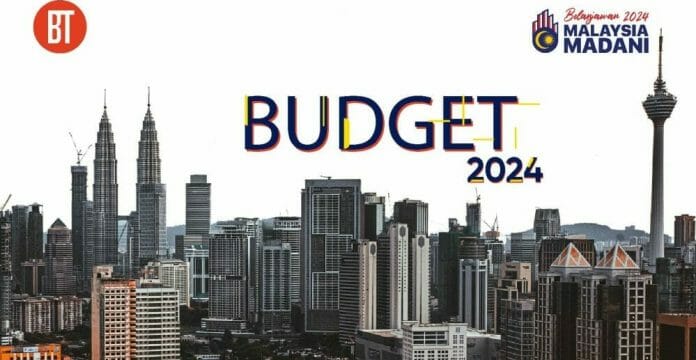Deficit to consolidate further to 4.3% of GDP
Prime Minister Datuk Seri Anwar Ibrahim will table Budget 2024 on 13 Oct 2023 under efforts to pull in investments, socioeconomic restructuring, and the need for fiscal resilience.
CGS -CIMB, in its Economics Focus today (Oct 3) cited they believe there is a strong likelihood the budget will focus on fiscal tightening with an emphasis on funds reprioritised to households and sectors most needy.
The government will also likely see the MADANI framework, involving several announcements recently such as the New Industrial Masterplan 2030 and the 12th Malaysia Plan midterm review, being implemented into actionable policies.
With the state elections in the rearview mirror, CGS-CIMB thinks the political risk is significantly reduced, allowing the government to focus on economic matters.
‘Within this environment, we believe the government may target a fiscal deficit of 4.3% of GDP next year vs. 5.0% this year,” the research house said.
Revenue to grow mildly
CGS-CIMB projects fiscal revenue to grow modestly by 1.5% yoy in 2024 (2023: 1.4%) on the back of slightly higher tax collection given better 2024 economic growth of 4.6% yoy (2023: 4.0%). A few measures announced last year are likely to be implemented; top of the list are the capital gains tax on unlisted shares, global minimum tax, sugar tax on premixed beverages, and the move towards e-invoicing.
GST likely to be mentioned in some form or another
The theme most anticipated by the market is the possible comeback of the Goods and Services Tax (GST), which CGSCIMB believes is likely to appear in the budget speech in some form or another.
“We believe chances are high that the GST (or a renamed version of it) could be announced for implementation in 2025 or later, allowing for feedback from the general public and ensuring businesses are ready.”
Both OPEX and DE to contract
CGSCIMB sees both operating expenditure (OPEX) and development expenditure (DE) contracting. The decline in OPEX is likely to come from wider implementation of targeted subsidies, primarily electricity tariff, as well as for RON95 and diesel fuel.
As an offset, the government may offer cash transfers or increase in aid to the groups affected by the subsidy reduction in order to mitigate the impact on their finances.
The rollout of a new Central Database Hub (PADU), likely to be done by 1Q24F, will be the key in identifying the target groups for these efforts.
Meanwhile, they project development expenditure at RM90bn, lower than the RM97bn budgeted in 2023, as mentioned in the 12th Malaysia Plan (12MP) midterm review.
CGSCIMB also believes more spending will be channelled to raising the Basic DE from 50% to 60% of total DE by 2025 to the 6 poorest states.
Political jitters calmed but fears over rising costs may linger
With state elections over, CGSCIMB believes political uncertainty has eased. However, lingering public concerns over the cost of living could be a stumbling block given the recent increase in prices of oil and some food items.
Overall, key points to listen out for in the upcoming 2024 Budget speech are 1) any changes to the current targeted subsidy mechanism, especially for RON95; 2) details with respect to the rate and timing of new taxes, particularly the capital gains tax on unlisted shares; and 3) whether GST will make a comeback.
On the debt metrics, they suspect debt service charges will grow towards 16.1% of revenue (2023: 15.8%) but government debt is likely to stay below the limit of 65% of GDP.









